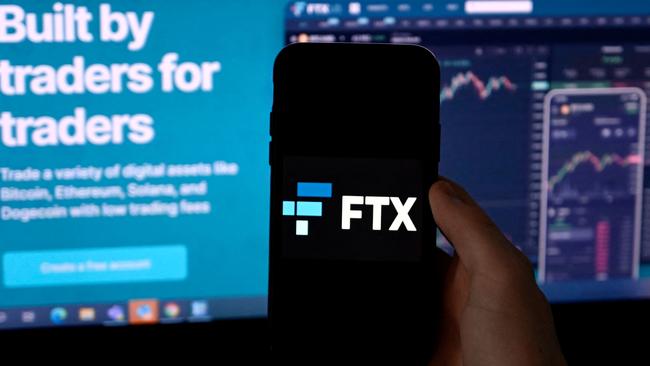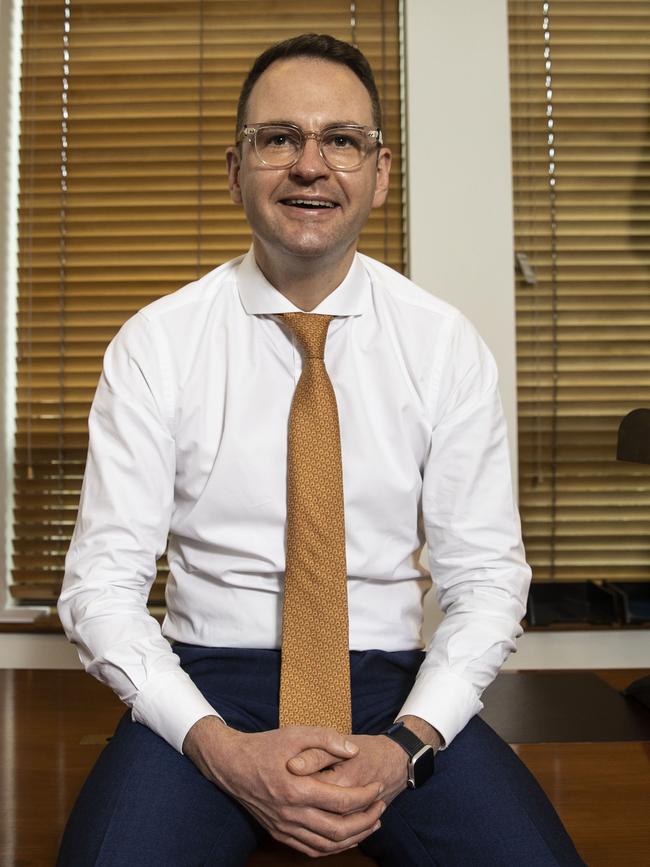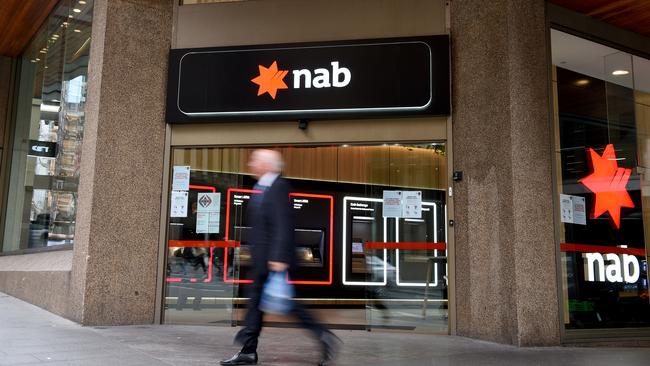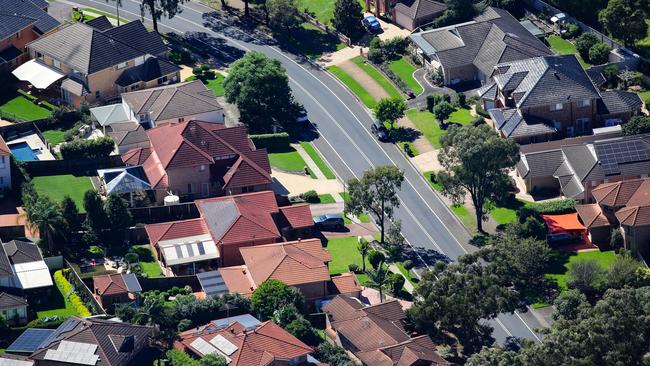
The Australian offshoot was placed in administration last week, shortly before the head company FTX filed for bankruptcy protection in the US, bringing founder and cryto darling Sam Bankman-Fried’s $US32bn ($48bn) empire crashing down.
The implosion will take a long time to untangle and no doubt will uncover much around how the 30-year-old Bankman-Fried ran his sprawling exchange, showing the “Wild West” of digital currency is still operating in the regulatory gaps.

It heightens the need for the Albanese government to get moving on Senator Andrew Bragg’s recommendations for the crypto and digital asset industry, including a requirement for Australian exchanges to have locally based custodial arrangements to protect investor money in the event of a crash of the global parent.
The Senate report released late last year was the first official look at cryptocurrencies in Australia and it was aimed at introducing a framework around digital assets, from bitcoin to NFTs, to build confidence among consumers and ultimately grow the sector. The Bragg report secured bipartisan support from Senate colleagues and spurred a flurry of inquiries, with Treasury also examining digital regulation while the powerful Board of Taxation looked at the tax treatment of the assets. The Treasury review is expected to be released next year, but the FTX collapse shows the digital world moves much faster.
“The best way to protect investors and promote innovation in this space is to regulate,” Senator Bragg said on Sunday.
While the scale of bitcoin is not known, estimates including those presented to the Bragg review put the portion of Australian adults who own or previously held cryptocurrency at 25 per cent. That would make Australia one of the biggest adopters of cryptocurrencies on a per capita basis.
It is not known yet how many of FTX’s 1.2 million customers are based in Australia. However, the business was big enough to set up its own structure with $12m of funding and apply for a financial services licence.
Local fallout
Bankman-Fried was named as a director of the Australian entity and in corporate filings he listed an address in The Bahamas as his place of residence. Two directors were based in Sydney as well as an auditor. Administrators from KordaMentha were appointed to the Australian business late last week. Jamie Kennedy, the country manager for FTX in Australia, has been active on the speaking circuit, also talking up the need for crypto-asset regulation in Australia, even appearing at a Bloomberg forum just last month.
The Australian offshoot was one of a handful in FTX’s sprawling global business not included in the Chapter 11 bankruptcy filing in the US, which covered about 130 affiliated companies, including Bankman-Fried’s trading unit Alameda Research.
FTX has also burnt a string of blue-chip backers, including influential Silicon Valley investor. Sequoia Capital, BlackRock, Singapore government-owned investment fund Temasek and Canada’s Ontario Teachers Pension Plan, which helped FTX secure legitimacy and inflated its valuation. Even Australian VC Fund Telstra Ventures lists FTX among its investments.
A statement accompanying the FTX Chapter 11 filing said the move was to assess the situation and “develop a process to maximise recoveries for stakeholders”.

Shockwaves from FTX will be felt around the world, with FTX’s 1.2 million customers, including those locally, now realising they never owned any of the bitcoins or other digital currencies acquired through the exchange.
Among other things, FTX essentially sold a “paper bitcoin” or an IOU from the exchange, which barely had any asset backing. As investors tried to close out their funds, it became clear that nothing was there. In addition, it became a major custodian for start-ups to hold their cash raised in funding rounds. FTX is understood to have offered to back a number of start-ups financially if they used its facilities.
The demise of FTX, the third and biggest collapse of a global exchange this year, spurred on a 20 per cent slide in the value of bitcoin last week, which on Sunday was trading at $US16,887. This time a year ago the digital currency was fetching more than $US64,000.
FTX Australia had a financial services licence for derivatives trading, putting it partially under the remit of ASIC. Financial regulators are closely monitoring the market this week for stresses across other crypto exchanges. The administrator’s report into FTX will also be close reviewed by ASIC.
One key venture capital player says the collapse heightened the need for local rules in custodian arrangements to protect funds.
“This (FTX) is unfortunate but it’s the shake-out that is badly needed to put the industry on the right path,” the investor said.
Banks Battle Royale
Days after National Australia Bank boss Ross McEwan told investors he was steering clear of parts of the mortgage market where competition was getting too hot, he upped the stakes against rivals.
NAB’s digital-only UBank is pledging to give $6000 cash back and a discounted rate of 4.49 per cent for customers taking out a new home loan or refinancing with a variable rate. The offer represents some of the more generous cash benefits available in the mortgage market and highlights the battle royale going on between banks to secure customers coming off fixed mortgages.

It also comes amid the backdrop of a slowing broader mortgage market where higher cash rate is rapidly cooling the property market.
Much of the focus in recent months has been looking for signs of stress in bank mortgage books as interest rates rise at the fastest pace in decades. But bank executives also have one eye on the opportunity with $250bn in fixed rate mortgages due to mature in the coming year. This means that customers will move off a cheap fixed rate locked in during the Covid pandemic, with most likely to refinance with a variable rate loan – an ideal time for customers to switch banks. Cash is being used as the big incentive to lure low-risk customers.
Among the big banks, ANZ and Westpac are making the biggest play for customers looking to refinance. This is to regain ground or keep momentum in their mortgage books. Westpac told The Australian’s Joyce Moullakis over the weekend it would “compete sensibly”. Commonwealth Bank, NAB, and even one-time aggressive rival Macquarie Bank have pulled back on pricing on their main brands in a bid to protect profit margins. Still, they are increasingly relying on their digital brands to stay in the market.
There’s a number of conditions with the Ubank pricing, including borrowers having a deposit of more than 20 per cent. The $6000 offer is only available for loans over $1m. For funding below that customers are still in line for $4000. It doesn’t apply to NAB’s main brand and existing customers are not eligible, showing the hunt is on for new borrowers.

It is understood the Ubank offer which expires in February, is aimed at regrowing momentum in the important mortgage broker market. It wasn’t as active through this channel while it was integrating the recently acquired digital bank 86 400. Westpac is offering up to $2000 cash back, with a 4.24 per cent headline rate. ANZ and Suncorp are separately offering up to $4000 cash back for new customers.
ANZ is expected to offer a deep discount on pricing when it goes with the full launch of its fully digital loan next year through its ANZ Plus platform. More recently CBA is using digital only Unloan as an attacker brand and is offering a discounted variable rate of 4.04 per cent. CBA is scheduled to hold a quarterly earnings update on Tuesday.
NAB’s McEwan told investors last week that intense competition in mortgages squeezing profit margins. This means he was preparing to shift funding to business banking where returns are higher.
“There’s a lot of competition in that marketplace and if you’ve got options as to where you put the money you put it to where the best return is, we’re looking after our mortgage franchise and we want to continue to grow. But I do not see with this pricing that we’ll be wanting to grow it as we did last year,” McEwan said.
johnstone@theaustralian.com.au






The spectacular collapse of US crypto exchange FTX is adding to pressure to strengthen protections for local investors, with many likely to see their holdings in cryptocurrencies held through the platform disappear into the digital void.